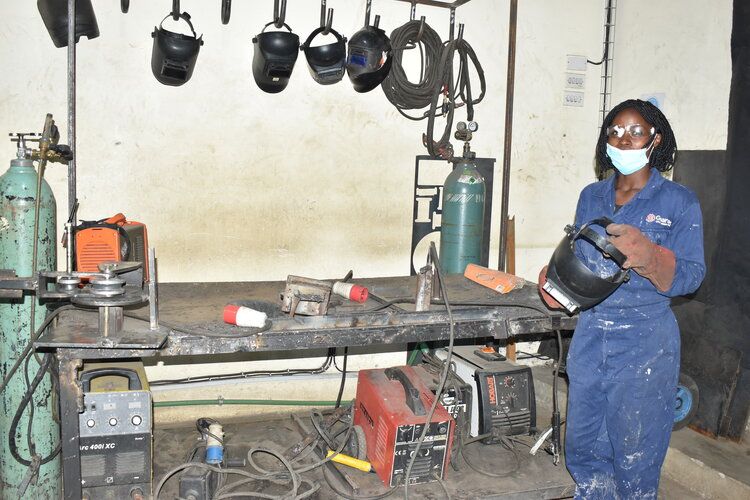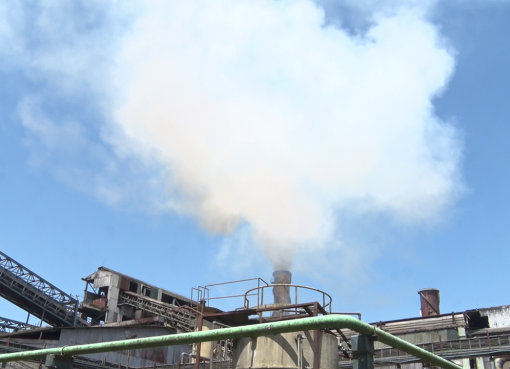The government is providing resources to enable small businesses’ access to reliable and affordable credit.
The State has committed that it will continue facilitating access to funds to Micro, Small and Medium Enterprises (MSMEs) through Savings and Credit Co-operative Societies (SACCOs), venture capital, equity funds and long-term debt for start-up and growth-oriented MSMEs.
State Department for MSMEs Development Principal Secretary Susan Mang’eni indicated that MSMEs, alongside agriculture, housing and settlement, healthcare, digital superhighway and creative industry were the five sectors identified by the Kenya Kwanza administration as the pathways towards economic recovery and inclusive growth.
She affirmed that these were the areas that President William Ruto’s government seeks to increase investments in.
Speaking in Bahati Sub-County after issuing a Sh 2.6 million Uwezo Fund cheque to 21 women and youth groups, Ms Mang’eni observed that MSMEs contribute significantly to Kenya’s economy by employing 85 percent of non-farm jobs.
“High interest rates by financial institutions crowd out the private sector and the MSMEs. Some of the interventions by the government include ending criminalisation of work of enterprises such as hawkers by enacting a right to work law, making trading licenses affordable and providing a trading location entity to every citizen or MSME who applies,” she affirmed.
While indicating that the government was committed to supporting initiatives to promote table banking by women and youth groups, Ms Mang’eni who was flanked by Bahati Member of Parliament Ms Irene Njoki (Mrembo) said Uwezo Fund had so far disbursed Sh 40 billion to 22 million Kenyans.
“Bahati Sub-County has received Sh 3.2 million so far from the Uwezo Fund Kitty. Other Sub-Counties that have benefited are Naivasha (Sh 3.8 million), Gilgil (Sh 1.3 million), Rongai (Sh 4.6 million), Subukia (Sh 4.4 million), Nakuru Town East (Sh 3.1 million), Nakuru Town West (Sh 2.9 million) and Kuresoi South (Sh 2.2 million) stated the Principal Secretary.
Ms Mang’eni indicated that the national government had crafted policies and strategies to create a favourable business and enterprise environment, decriminalise livelihood and support people in the informal sector to organise them into stable, viable and creditworthy business entities.
She stated that County governments have also been roped in and in partnership with the national government will create frameworks that provide secure trading places in cities and towns.
“To enhance MSMEs infrastructure and capacity building, the government plans to establish MSME business development centre in every ward. It also plans to enhancing the contribution of Micro, Small Medium Enterprises (MSMEs) to the economy through a package of interventions that include an enabling business environment, access to affordable credit facilities and markets as key priority areas,” the Principal Secretary offered.
Ms Mang’eni said the national government had stepped up its efforts to address mismatch of MSMEs’ needs and the design of the financing products on offer through establishment of the Financial Inclusion Fund (Hustlers Fund).
She stated that Dr. Ruto’s administration was also working on a framework of policies that will encourage MSMEs to grow and reduce their mortality rate.
The Principal Secretary underscored the importance of MSMEs to the country’s economic development and job creation as envisioned in Vision 2030.
The government, she added, was also keen on facilitating the MSMEs to deepen their integration with the formal economy, particularly in manufacturing, agribusiness and services.
According to the Kenya National Bureau of Statistics, Kenya has over 7 million MSMEs, which employ some 15 million people across all sectors and account for roughly 40 percent of the Gross Domestic Product (GDP).
MSMEs are also considered a driver of development since they cover a wide variety of activities in nearly all sectors of the economy.
Ms Njoki observed that the Uwezo Fund was aimed at enabling women, youth and persons with disabilities access finances to promote businesses and enterprises at the constituency level.
The fund was established through Legal Notice No. 21 of February 21, 2014, and implemented under the Public Finance Management (Uwezo Fund) Regulations, 2014.
The MP explained that the Uwezo Fund is a flagship programme of Kenya’s Vision 2030 blueprint and also includes initiatives to enable women and the disabled access funds to promote businesses and enterprise at the constituency level, thereby enhancing economic growth.
The loans do not attract interest and beneficiaries enjoy a grace period of six months and thereafter make repayments for two years.
Uwezo Fund is administered at the constituency level through a revolving fund that provides accessible and affordable credit, capacity building and market linkages to youth, women and disabled persons for their socio-economic development.
Ms Njoki observed that Kenya has turned to the kitty in a bid to tame the high youth unemployment.
Micro Small and Medium Enterprises play a crucial role in economic development in Kenya. They are a vital engine in the economy since they drive growth, create employment – especially among youth – and spearhead innovation.
They provide a customer base to larger companies across the supply chain and supply vital goods and services to companies and households, helping to keep the wheels of the economy in motion.
Ms Njoki indicated that many MSMEs have the potential to become tomorrow’s large corporations that the government needs in order to continue on its path to growth and prosperity.
“Many studies reveal that MSMEs growth is constrained among others by lack of financial support, poor management, lack of training and experience, poor infrastructure, and low profits.
They were highly exposed to the negative impact of Coronavirus disease (COVID-19). So, supporting their survival is not only crucial for mitigating the economic systemic impact but also to sustain employment and create the conditions needed for future growth,” observed the law maker.
According to the 2022 Survey Report on MSME Access to Bank Credit by the Central Bank of Kenya (CBK), MSMEs are cited as the key source of funding for banking, accounting for 14.9 percent and 59.5 percent of total customer deposits held in commercial banks and microfinance banks respectively.
As of December 2022, there were 1.18 million active MSME loan accounts in the banking industry, with a total value of sh783.3 billion.
This was a 29 percent increase from 915,115 active loan accounts valued at Sh638.3 billion as of the last MSME lending survey in December 2020. “Of the 1.18 million MSMEs loan accounts in the banking industry as of December 2022, 216,951 accounts valued at Sh90.4 billion were classified as non-performing. This amounted to 18.3 percent of total MSME loan accounts and 11.5 percent of the total value of outstanding MSME loans,” the CBK survey reads.
It adds that non-performing loans (NPLs) also made up 17.5 percent of total banking industry NPLs as of December 2022, which stood at Sh515.7 billion.
The survey shows collateral requirements continue to be a major consideration for banks in extending credit to MSMEs, with lenders requiring MSMEs in all categories to post collateral that is of sufficient value to substantially cover the full credit exposure.
“A majority of MSMEs do not possess the types of assets that are typically accepted by banks as collateral. Collateral requirements continue to be a major barrier for MSMEs in accessing formal credit,” the survey states.
MSMEs are vital in achieving the Sustainable Development Goals (SDGs), particularly SDG Eight on decent work and economic growth and SDG Nine on industry, innovation and infrastructure.
The International Council for Small Business indicates that globally, formal and informal MSMEs make up over 90 percent of all firms and account for 70 percent of total employment and 50 percent of gross domestic product.
In Kenya, MSMEs are the engines of growth and play a key role in the country’s economic development. The sector contributes about 80 percent of employment and is crucial in reducing poverty, stimulating entrepreneurship, and promoting innovation for achieving the Sustainable Development Goals (SDGs).
Over the last two years, MSMEs have continued to face uncertainty due to the adverse effects of COVID-19 on economies globally. The recession emanating from COVID-19 has taken a substantial toll on small businesses, including closures, cash flow and working capital erosion, disruption of supply chains, losses in incomes, and shifts in customer preferences.
By Jane Ngugi and Dennis Rasto




